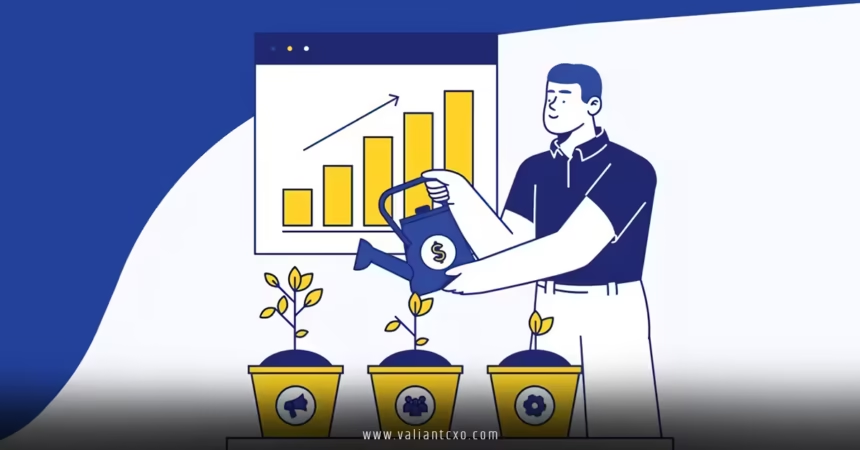Scaling online courses for more revenue isn’t just about slapping a higher price tag on your course or spamming social media with ads. It’s about building a sustainable, strategic system that amplifies your reach, enhances your offerings, and turns your expertise into a revenue-generating machine. Whether you’re a solopreneur with a single course or an edupreneur juggling a full catalog, scaling is the key to unlocking exponential growth. Ready to transform your online course business into a thriving empire? Let’s dive into the nitty-gritty of scaling online courses for more revenue with practical, actionable strategies.
Why Scaling Online Courses for More Revenue Matters
Picture your online course as a cozy coffee shop. You’ve got loyal customers, a killer latte recipe, and a vibe that keeps people coming back. But if you’re stuck serving only a handful of regulars, your revenue stays capped. Scaling is like opening new locations, franchising your brand, or adding a drive-thru—without losing the charm that made your shop special. Scaling online courses for more revenue allows you to reach more students, diversify income streams, and maximize profits while maintaining quality. But how do you do it without burning out or alienating your audience?
The Mindset Shift: From Creator to Scalable Business Owner
Before diving into tactics, let’s talk mindset. Scaling online courses for more revenue requires you to stop thinking like a lone creator and start acting like a CEO. That means automating processes, outsourcing tasks, and focusing on systems that let your business run without you micromanaging every detail. It’s not about working harder—it’s about working smarter. Are you ready to let go of control and build a business that grows even when you’re sipping piña coladas on a beach?
Step 1: Optimize Your Existing Course for Maximum Appeal
Before you scale, ensure your course is a well-oiled machine. A shaky foundation won’t support growth, no matter how many ads you run. Here’s how to polish your course to set the stage for scaling online courses for more revenue.
Refine Your Course Content
Your course is your product, and it needs to shine. Is your content engaging, up-to-date, and delivering real value? Audit your lessons to eliminate fluff, add interactive elements like quizzes or live Q&As, and ensure your material is beginner-friendly yet packed with actionable insights. For example, if you’re teaching digital marketing, include real-world case studies or templates students can use immediately. A polished course builds trust and boosts word-of-mouth referrals, which are gold for scaling online courses for more revenue.
Enhance User Experience
Ever tried navigating a clunky website? Frustrating, right? Your course platform should be intuitive and seamless. Use platforms like Teachable or Thinkific to create a professional, user-friendly experience. Optimize for mobile, add clear navigation, and ensure fast load times. A smooth experience keeps students engaged and reduces drop-off rates, paving the way for higher revenue.
Price Strategically
Pricing is a balancing act. Charge too little, and you undervalue your expertise; charge too much, and you scare away students. Research your market to find the sweet spot. Consider tiered pricing—basic, premium, and VIP packages—to cater to different budgets. For instance, a basic course might cost $99, while a VIP package with coaching calls could fetch $499. Strategic pricing is a cornerstone of scaling online courses for more revenue.
Step 2: Expand Your Audience Reach
You’ve got a stellar course—now it’s time to get it in front of more eyeballs. Scaling online courses for more revenue hinges on reaching new audiences without breaking the bank.
Leverage Content Marketing
Content is your megaphone. Blog posts, YouTube videos, and podcasts are powerful ways to attract potential students. Create content that solves problems related to your course topic. For example, if your course teaches photography, write a blog post titled “10 Common Photography Mistakes Beginners Make.” Sprinkle in your keyword—scaling online courses for more revenue—naturally, and include a call-to-action linking to your course. Consistent content builds authority and drives organic traffic.
Harness Social Media and Communities
Social media isn’t just for cat videos. Platforms like Instagram, LinkedIn, and TikTok are goldmines for connecting with your audience. Share quick tips, behind-the-scenes glimpses of your course creation, or student success stories. Join online communities like Reddit or Facebook groups where your target audience hangs out. Engage authentically—don’t just spam links. Building relationships in these spaces can skyrocket your course’s visibility.
Invest in Paid Advertising
Organic growth is great, but paid ads can supercharge your reach. Platforms like Google Ads or Facebook Ads let you target specific demographics with laser precision. Start small, test different ad creatives, and track your return on investment. A well-crafted ad campaign can drive a flood of new students, making it a key tactic for scaling online courses for more revenue.
Step 3: Diversify Your Revenue Streams
Relying solely on course sales is like putting all your eggs in one basket. To truly scale, diversify your income streams while keeping your core offering strong.
Create Upsells and Cross-Sells
Once a student buys your course, don’t stop there. Offer complementary products like eBooks, templates, or exclusive webinars. For example, if your course is about graphic design, sell a bundle of Canva templates for $29. These add-ons boost revenue without requiring much extra effort, making them perfect for scaling online courses for more revenue.
Launch a Membership Program
A membership model provides recurring revenue—a dream for any business. Create a subscription-based community where students get ongoing access to new content, live coaching, or exclusive resources. Platforms like Patreon make this easy to set up. A membership program keeps students engaged and generates steady income, amplifying your scaling efforts.
Offer Group Coaching or Workshops
Some students crave personalized attention. Offer group coaching sessions or live workshops at a premium price. For instance, a monthly group coaching call priced at $199 can add thousands to your revenue. These high-ticket offerings enhance your course’s value and make scaling online courses for more revenue more attainable.
Step 4: Automate and Outsource for Efficiency
Scaling online courses for more revenue isn’t about doing more—it’s about doing less, better. Automation and outsourcing free up your time to focus on growth.
Automate Marketing and Sales Funnels
Ever feel like you’re stuck in a hamster wheel of emails and follow-ups? Marketing automation tools like Mailchimp or ConvertKit can handle email sequences, lead nurturing, and sales funnels. Set up a funnel that guides prospects from a free lead magnet (like an eBook) to your course purchase. Automation ensures you’re reaching students 24/7 without lifting a finger.
Outsource Non-Core Tasks
You’re an expert in your course topic, not necessarily in video editing or customer support. Outsource tasks like content creation, graphic design, or tech support to freelancers on platforms like Upwork or Fiverr. This lets you focus on high-impact activities like creating new courses or refining your marketing strategy.
Step 5: Build a Community for Long-Term Growth
A loyal community is the secret sauce for scaling online courses for more revenue. Engaged students become advocates, spreading the word and driving referrals.
Foster Engagement
Create a space where students can connect, like a private Facebook group or a forum on your course platform. Encourage discussions, share exclusive tips, and celebrate student wins. A thriving community builds trust and keeps students coming back for more.
Encourage Reviews and Testimonials
Positive reviews are your best salespeople. Ask satisfied students for testimonials and showcase them on your website and marketing materials. Offer incentives like discounts on future courses for honest feedback. Testimonials build credibility, which is crucial for scaling online courses for more revenue.
Step 6: Analyze and Optimize Performance
Scaling isn’t a “set it and forget it” deal. You need to track what’s working and tweak what’s not.
Use Analytics to Track Progress
Platforms like Google Analytics or your course platform’s built-in analytics can show you where your students are coming from, how long they stay, and where they drop off. Use this data to refine your marketing, improve course content, and boost conversions. Data-driven decisions are key to scaling online courses for more revenue.
A/B Test Everything
Not sure if a new headline or pricing tier will work? Test it! A/B testing lets you compare two versions of an ad, landing page, or email to see which performs better. Small tweaks can lead to big revenue gains over time.
Conclusion: Your Path to Scaling Online Courses for More Revenue
Scaling online courses for more revenue is like building a rocket ship—it takes careful planning, a strong foundation, and constant tweaks to reach the stars. By optimizing your course, expanding your reach, diversifying revenue streams, automating processes, building a community, and analyzing performance, you can transform your course into a thriving business. The journey isn’t always easy, but the rewards are worth it. So, what’s stopping you? Start implementing these strategies today, and watch your online course empire soar!
FAQs
1. How long does it take to start scaling online courses for more revenue?
The timeline depends on your starting point and resources. Optimizing an existing course can take a few weeks, while building a full marketing funnel or community might take months. Consistent effort and testing can yield results within 3-6 months.
2. Do I need a big budget to scale my online course?
Not necessarily! Organic strategies like content marketing and community building are low-cost. Paid ads and automation tools require investment, but you can start small and scale up as revenue grows.
3. What’s the best platform for scaling online courses for more revenue?
Platforms like Teachable, Thinkific, and Kajabi are popular for their scalability, user-friendly interfaces, and marketing tools. Choose one that fits your budget and technical needs.
4. How can I ensure my course remains high-quality while scaling?
Regularly update content, gather student feedback, and test new features. Automation and outsourcing can help maintain quality without overwhelming you.
5. Can I scale a course in a niche market?
Absolutely! Niche markets often have highly engaged audiences. Focus on targeted marketing and creating hyper-relevant content to attract and retain students.
Similar Articles:valiantcxo.com


